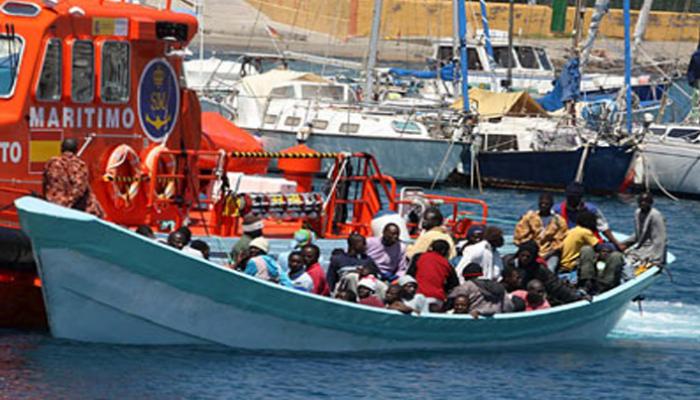In Italy between August 2013 and July of this year, 117,000 African migrants have arrived by boat, crafts both large and not so large.
As the refugees cross the Mediterranean, other Africans try to cross the barbed wire fences at the Ceuta and Melilla Spanish enclaves in Northern Africa and are often shot and killed by border patrols.
On the 21st of March of this year, Guinea’s government declared an outbreak of the Ebola virus. According to a report from the World Health Organization (WHO) the following day, more than 140 people had already died, with a total of 208 clinical cases of Ebola registered throughout that West African country. Keiji Fukuda, the WHO’s assistant director-general, described the situation as “one of the most challenging Ebola outbreaks that we have ever faced”.
Despite health officials stressing that Ebola is not an easy virus to catch, Italian authorities – a main point of entry into Europe for African migrants – acted accordingly. On the 4th of April, an official statement from the Ministry of Health declared "the activation of appropriate measures of surveillance at all international access points to Italy".
This document stressed the need to monitor all the "official and non-official" arrivals, especially on the island of Lampedusa, a renowned transit point for migrants trying to enter Europe, and the location of controversial refugee camps that have been criticized for their mistreatment of migrants.
As is to be expected, Italian border patrols are now boarding migrant boats in the
Mediterranean seeking patients of ebola, tuberculosis and other contagious diseases.
In response to the Ministry of Health statement, Pietro Bartolo – the healthcare coordinator in Lampedusa – told Italian press that the latest immigrants to be rescued off the island’s coast were mainly from Libya, and therefore unlikely to be Ebola carriers.
Other reassurances arrived from different parts of Italy. The refugee centre coordinator in Bolzano, in northern Italy, stated: “… the migrants coming from nations considered ‘at-risk’ left their countries long before the epidemic outbreak. Ebola has a 20-day incubation period. The refugees [who recently] arrived in Bolzano [had] been travelling for a much longer period of time before arriving.”
Authorities in Pisa, Tuscany also reassured their residents that there was no need to be alarmed about an Ebola outbreak in the city, where 40 migrants arrived on the day the Guinean government released their statement.
This is the real story. But, the internet hasn’t taken such a rational approach. Conspiracy theory Italian websites have started to suggest that Italy is now at the mercy of plague-spreading illegal aliens, the government intentionally keeping quiet to avoid widespread panic.
One solution to prevent this invasion of infected migrants was offered on the Facebook page of Catena Umana or Human Chain, an anti-Euro, anti-migrant, anti-Islam group that specializes in nonsense. The page radvises: “stop all arrivals, close all borders or keep [the migrants] in quarantine on the sea. Do you want to give citizenship to ebola as well?"
Even Morocco, they claim, “has closed its borders”, while Italians remain slaves to the “politically correct”.
Such Europeans have always shown their deep displeasure towards African migrants who try to escape poverty and oppression and seek refuge in countries up north. These migrant-haters are having a ball feeding the rumor mills and accusing refugees of every crime in the book. Now, even the economic difficulties of a number of nations in the European Union are being blamed on African migrants.
In the coming months the Ebola crisis is sure to become a political weapon of anti-migrant forces, usually linked to tultra right wing European politics.
No one rejects the idea that nations have the right to protect themselves from the danger of epidemics introduced from abroad, but to use this threat as an excuse to throw a ubiquitous cloak of hatred against migrants is something else again.
One solution cis for rich European countries to help African nations contain the propagation of the Ebola virus and the spiral of deaths it is causing due to poverty, misery and lack of medical attention.
The rich nations should support the efforts of the World Health Organization against this virus and give a hand to poor African nations trying to fight a common enemy.


